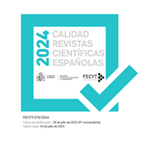Code-switching in an institutional setting: negotiating social roles in bilingual encounters in Guatemala
Resumen
In this paper, I investigate the ways in which bilingual speakers utilize linguistic resources to negotiate social roles and manage social relationships at an institutional setting in Momostenango, Guatemala. Drawing from studies on code-switching and politeness, I examine the ways in which speakers utilize the available language resources—Spanish and K’iche’ on the one hand, and second-person pronouns on the other—to negotiate social roles in institutional interactions. This study contributes to our understanding of the ways in which bilinguals organize and conceptualize social roles in culturally specific and meaningful ways. The qualitative analysis of speech examples can adequately show facets of social life when combined with an ethnographic understanding. In addition, by focusing on actual language use and on a single institutional setting rather than multiple ones, this study brings to light the complex dynamics of using both Spanish and K’iche’ as well as formal and familiar pronouns in Guatemala.Descargas
Descarga artículo
Licencia
La revista Círculo de Lingüística Aplicada a la Comunicación, para fomentar el intercambio global del conocimiento, facilita el acceso sin restricciones a sus contenidos desde el momento de su publicación en la presente edición electrónica, y por eso es una revista de acceso abierto. Los originales publicados en esta revista son propiedad de la Universidad Complutense de Madrid y es obligatorio citar su procedencia en cualquier reproducción total o parcial. Todos los contenidos se distribuyen bajo una licencia de uso y distribución Creative Commons Reconocimiento 4.0 (CC BY 4.0). Esta circunstancia ha de hacerse constar expresamente de esta forma cuando sea necesario. Puede consultar la versión informativa y el texto legal de la licencia.











